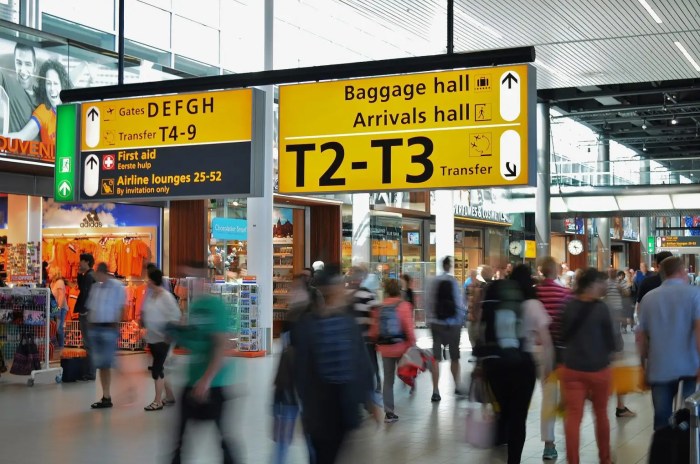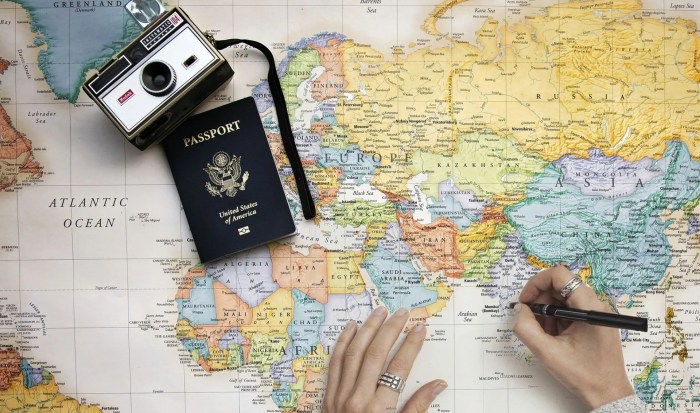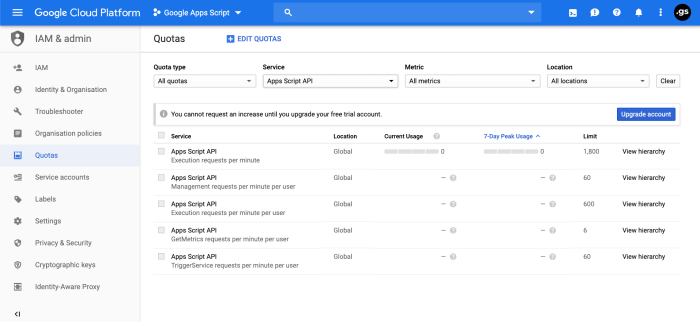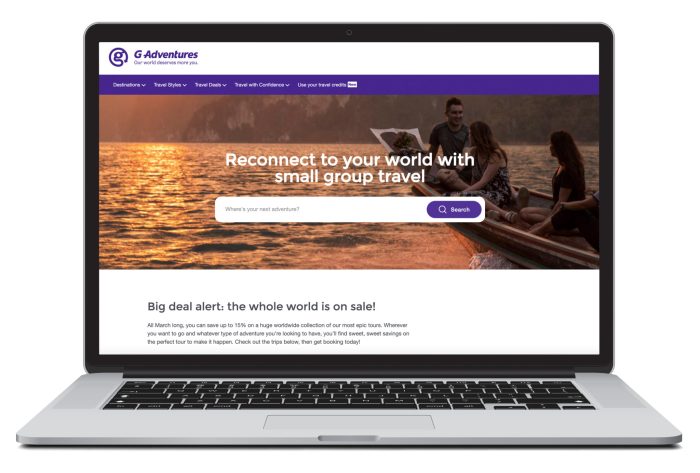Best Last Minute Travel Deals Score Amazing Trips
Best last minute travel deals can be your ticket to amazing adventures! Snagging a great last-minute deal requires a bit of savvy, but the rewards—a fantastic vacation at a fraction of the usual cost—are well worth the effort. This guide will equip you with the knowledge and strategies to find those hidden gems, whether you’re a spontaneous adventurer or a meticulous planner.
We’ll explore the factors influencing last-minute prices, teach you how to use comparison websites and price trackers effectively, and even help you identify the type of last-minute traveler you are. We’ll cover the potential pitfalls and how to avoid them, plus share inspiring stories of both successful and challenging last-minute trips. Get ready to unlock the world of incredible travel deals!
Understanding “Best Last Minute Travel Deals”

Source: makeuseofimages.com
Snagging a last-minute travel deal can feel like winning the lottery, but understanding the factors at play can significantly improve your chances. These deals aren’t random; they’re the result of airlines and hotels needing to fill empty seats and rooms. Knowing how these dynamics work is key to finding the best bargains.
Factors Influencing Last-Minute Deal Availability
Several factors contribute to the availability of last-minute travel deals. Airlines and hotels often lower prices to avoid losses from unsold inventory, especially closer to the departure or check-in date. Unexpected events, such as cancellations or reduced demand due to weather or other unforeseen circumstances, can also create opportunities for significant discounts. The time of year plays a crucial role; shoulder seasons (periods between peak and off-peak seasons) often offer better deals than peak travel times. Finally, the specific location and popularity of the destination significantly impact pricing. Less popular destinations or those experiencing lower demand at a particular time are more likely to offer last-minute deals.
Typical Price Fluctuations for Flights and Accommodations
Flight and accommodation prices fluctuate throughout the year, mirroring seasonal demand. Peak seasons, such as summer holidays and major festive periods, typically see higher prices. Conversely, off-peak seasons, like winter months (excluding holiday periods) or shoulder seasons (spring and autumn), usually offer more affordable options. For example, flights to popular beach destinations will be significantly more expensive during the summer months than in the quieter winter months. Similarly, hotels in major cities will command higher prices during peak business travel times and major events. Flexibility in travel dates can also significantly impact pricing. Mid-week flights and stays are often cheaper than weekend travel.
Examples of Last-Minute Travel Deals
Last-minute travel deals come in various forms.
- Flights: Airlines often release discounted fares on flights with unsold seats, particularly on less popular routes or during off-peak hours. These deals are often advertised through email alerts or on the airlines’ websites.
- Hotels: Hotels frequently offer last-minute discounts on rooms to maximize occupancy. These deals can be found on hotel booking websites or directly through the hotel’s website.
- Packages: Some travel agencies and online platforms offer last-minute travel packages that bundle flights and accommodation, often at a reduced price compared to booking each element separately. These packages frequently include additional perks, such as airport transfers or meals.
Comparison of Last-Minute Booking Platforms
Several online platforms specialize in last-minute travel deals. Each platform has its own strengths and weaknesses.
| Platform | Advantages | Disadvantages |
|---|---|---|
| Skyscanner | Wide range of flight options, price comparison tools | Less focus on hotels and packages |
| Expedia | Comprehensive platform offering flights, hotels, and packages | Can be less user-friendly than some specialized platforms |
| Booking.com | Extensive hotel listings, user-friendly interface | Limited flight options |
| Google Flights | Excellent price tracking and flexible date search | Doesn’t directly book flights or hotels |
Finding Last-Minute Travel Deals: Best Last Minute Travel Deals

Source: smartertravel.com
Snagging amazing last-minute travel deals requires a blend of strategy and a bit of luck. The key is to be flexible, persistent, and ready to pounce when a great offer appears. Don’t expect luxury resorts at rock-bottom prices, but you can definitely find significant savings on flights and accommodations if you know where to look and how to search effectively.
Many factors influence last-minute pricing, including seasonality, airline overbooking, and hotel occupancy. Airlines and hotels often reduce prices to fill empty seats and rooms, creating opportunities for savvy travelers. By understanding these dynamics and employing the right techniques, you can significantly increase your chances of finding incredible deals.
Utilizing Flight Comparison Websites and Metasearch Engines
Flight comparison websites and metasearch engines are invaluable tools for finding the best last-minute flight deals. These platforms aggregate flight information from various airlines and travel agencies, allowing you to compare prices quickly and easily. Popular options include Google Flights, Skyscanner, Kayak, and Momondo. Each site has its own strengths; some are better at finding budget airlines, while others excel at visualizing price trends over time. Effective use involves specifying your desired airports and dates, but also experimenting with flexible date searches to see if shifting your travel plans by a day or two yields significant savings. Consider using the “explore” feature on many sites to see prices to a range of destinations, opening you up to spontaneous adventures.
Employing Price Tracking Tools for Flights and Hotels
Price tracking tools are game-changers for last-minute travel. These services monitor prices for specific flights or hotels and alert you when prices drop. This eliminates the need to constantly check prices manually. Popular options include Google Flights’ price tracking feature, Hopper, and Kayak’s price alerts. Setting up price alerts is usually straightforward; you specify your desired travel dates, destinations, and price threshold, and the tool notifies you via email or app notification when a price falls below your target. For example, if you’re flexible with your dates, setting up a price alert for a flight to a general region (e.g., anywhere in Italy) rather than a specific city can broaden your options and potentially uncover cheaper deals. Remember to check the terms and conditions of each tool, as some may charge a subscription fee for advanced features.
Reliable Sources for Discovering Hidden Last-Minute Travel Deals
Finding hidden gems requires exploring beyond the mainstream. Consider these additional avenues:
Directly contacting hotels: Hotels sometimes offer last-minute discounts directly to customers who contact them. Calling or emailing a hotel to inquire about availability and potential deals can sometimes yield unexpected savings, especially if it’s a smaller, independent property.
Social media and deal websites: Websites and social media groups dedicated to travel deals often feature last-minute offers. These can range from flash sales on flights to heavily discounted hotel packages. Sites like Groupon and LivingSocial sometimes offer travel deals.
Airline and hotel loyalty programs: Accumulating points or miles through loyalty programs can sometimes unlock exclusive last-minute discounts or upgrades. These programs frequently offer members-only deals that aren’t advertised publicly.
Types of Last-Minute Travelers and Their Needs

Source: villaexperience.com
Last-minute travel is driven by a diverse range of individuals with varying motivations and priorities. Understanding these different traveler profiles is crucial for both travelers seeking the best deals and travel companies aiming to attract their business. These profiles aren’t mutually exclusive; a single traveler might exhibit characteristics of multiple types depending on the specific trip.
Different types of last-minute travelers exist, each with unique needs and booking behaviors. Their motivations range from spontaneous adventures to budget constraints and scheduling flexibility. Travel companies leverage this understanding to create targeted marketing campaigns and offers.
Spontaneous Adventurers
Spontaneous adventurers prioritize experiencing new things without extensive planning. They thrive on the thrill of the unknown and are less concerned with specific destinations or accommodations as long as the experience is exciting and memorable. Their needs focus on ease and speed of booking, with a strong emphasis on value for money given their impulsive nature. They often utilize mobile booking apps and are highly responsive to time-sensitive promotions. For example, a traveler might see a flash sale for a weekend getaway to a nearby city and book immediately, prioritizing a fun experience over meticulous research.
Budget-Conscious Travelers
Budget-conscious travelers prioritize affordability above all else. They meticulously search for the cheapest flights and accommodations, often compromising on luxury or convenience to save money. Their needs revolve around finding the absolute lowest prices, often employing price comparison websites and utilizing flexible travel dates to maximize savings. Airlines and hotels often target this group with deeply discounted last-minute offers, sometimes even offering “error fares” or other unexpected deals. A student looking for a cheap flight home for the holidays might fall into this category, actively monitoring flight prices and taking advantage of any last-minute discounts.
Flexible Travelers
Flexible travelers have the most leeway in their travel plans. They are willing to adjust their dates, destinations, or even the type of accommodation to secure a better deal. Their needs are centered around adaptability and finding the best value for their time and money. They are less concerned with specific details and are more open to exploring different options. Cruise lines, for instance, often offer last-minute deals on cabins because they need to fill available space. A retiree with a flexible schedule might be perfectly happy to take a last-minute cruise to a destination they haven’t considered before, simply because the price is right.
Business Travelers with Unexpected Changes
This category encompasses business travelers whose schedules change unexpectedly, forcing them to book last-minute flights or accommodations. Their needs are focused on speed, reliability, and often, proximity to business locations. Corporate travel agencies frequently assist this segment, negotiating bulk discounts with hotels and airlines and ensuring seamless travel arrangements even under tight deadlines. An executive whose meeting is suddenly rescheduled might need to book a flight within hours, prioritizing a convenient and reliable option, even if it’s more expensive than planned.
Risks and Considerations of Last-Minute Travel

Source: lucandjune.com
Snagging a last-minute travel deal can feel like winning the lottery, but it’s crucial to understand the potential drawbacks before you book. While the thrill of spontaneous adventure is undeniable, last-minute travel isn’t always the best option for everyone. This section explores the risks and provides strategies to minimize them.
Last-minute travel often means less choice and potentially higher prices. You’re essentially shopping for what’s left, which might not be ideal for your specific needs or preferences. Flights might be on less desirable airlines or at inconvenient times, and hotel options may be limited to less appealing locations or higher price points. The element of surprise can be exciting, but it also introduces a level of uncertainty that some travelers find stressful.
Limited Choices and Higher Prices
The most significant risk of last-minute travel is the limited availability of flights, hotels, and other travel services. Airlines and hotels often raise prices as departure dates approach, especially during peak seasons. This is due to simple supply and demand; fewer seats and rooms are available, increasing their value. You might find yourself settling for a less-convenient flight time, a less desirable hotel location, or even paying significantly more than if you’d booked in advance. For example, a flight from New York to London might cost $500 if booked three months in advance, but could easily jump to $800 or more if booked just a week before departure.
Strategies for Mitigating Risks
While the risks are real, they’re not insurmountable. Flexibility is key. Being open to alternative destinations, travel dates, or even types of accommodation can significantly improve your chances of finding a good deal. Using flight comparison websites that allow for flexible date searches can help you identify cheaper options. Consider less popular airports or travel during the off-season if possible. Booking a package deal can sometimes offer better value than booking flights and accommodation separately. Finally, remaining vigilant and checking prices frequently in the days leading up to your desired travel dates can help you catch any last-minute price drops.
Situations Where Last-Minute Travel Is Not Advisable
Last-minute travel isn’t always the best choice. For instance, traveling during peak season (holidays, school breaks) drastically reduces your chances of finding affordable deals and increases the risk of limited availability. Similarly, traveling to popular destinations that require visas or complex travel arrangements should be planned well in advance to avoid complications. If you’re traveling with a large group or have specific accessibility needs, booking early is crucial to ensure everyone’s needs are met. Finally, last-minute travel is generally not recommended for those who prefer a stress-free and well-organized trip.
Comparison of Advance vs. Last-Minute Booking
| Pro | Con | Advance Booking | Last Minute Booking |
|---|---|---|---|
| Lower Prices (usually) | Less Flexibility | Wider selection of flights, hotels, and activities; Better deals on packages. | Potential for unexpectedly good deals; Spontaneity and adventure. |
| More Choices | Risk of missing out on deals if prices drop later | More time to plan and research; Less stress leading up to the trip. | Limited choices; Higher prices (often). |
| Better Planning | Potential for unexpected costs | Opportunity to secure preferred accommodations and activities. | May require compromises on accommodations and activities. |
| Stress-Free Trip | Less time for planning and preparation | More time to secure necessary travel documents and visas. | Potential for rushed preparations and missed opportunities. |
Illustrating Last-Minute Travel Experiences

Source: officialtop5review.com
Last-minute travel can be a rollercoaster of emotions, ranging from exhilarating freedom to stressful chaos. The experience is heavily dependent on preparation, flexibility, and a healthy dose of luck. Let’s explore both the highs and lows to better understand what to expect.
A Successful Last-Minute Getaway
Imagine this: It’s Tuesday, and you’re feeling burnt out. Scrolling through social media, you stumble upon a ridiculously cheap flight to a charming coastal town you’ve always dreamt of visiting. The flight leaves Friday morning. You book it instantly, grabbing a cute Airbnb overlooking the ocean. The weekend unfolds perfectly: sunny skies, delicious seafood, breathtaking sunsets, and a complete escape from the daily grind. You return to work feeling refreshed, invigorated, and with a treasure trove of amazing memories. The spontaneous nature of the trip amplified the joy, turning a simple weekend escape into an unforgettable adventure. The unexpected nature of the trip also made it feel like a special reward. This positive experience is fueled by a combination of factors: a great deal, beautiful weather, a welcoming location, and a flexible schedule allowing you to embrace the opportunity.
A Challenging Last-Minute Travel Experience
Now, let’s consider the flip side. You’re desperately needing a break, and you book a last-minute flight to a popular city, only to arrive and find your hotel overbooked. The replacement hotel is miles from the city center, requiring expensive taxis. The weather turns unexpectedly stormy, cancelling planned outdoor activities. Your carefully crafted itinerary crumbles, and you’re left feeling frustrated and disappointed. The initial excitement is replaced by stress and inconvenience. The lack of planning and the unexpected setbacks combined to create a negative experience. This situation illustrates the importance of contingency planning and realistic expectations when booking last-minute trips.
Emotional Impact of Last-Minute Travel
The emotional rollercoaster of last-minute travel is significant. Successful trips generate immense joy, a sense of freedom, and a feeling of accomplishment from successfully navigating the unexpected. The spontaneous nature of these trips often leads to heightened excitement and a stronger sense of adventure. Conversely, challenging experiences can evoke frustration, disappointment, and even regret. The unexpected setbacks and lack of control can lead to stress and anxiety. The emotional impact is directly tied to the level of preparedness and the ability to adapt to unforeseen circumstances.
Managing Expectations for Last-Minute Travel
Effectively managing expectations is crucial for a positive last-minute travel experience. Accept that compromises may be necessary. Instead of aiming for a luxurious five-star hotel, consider a charming boutique hotel or a well-reviewed Airbnb. Be flexible with your travel dates and destinations. Consider alternative transportation options and have backup plans for activities. By acknowledging the potential challenges and preparing for them, you can significantly reduce stress and increase your chances of a memorable trip, even if it’s booked at the last minute. Remember, the goal is to enjoy the break and escape, not to meticulously recreate a perfectly planned vacation.
The Future of Last-Minute Travel

Source: rismedia.com
The last-minute travel market is poised for significant transformation, driven primarily by technological advancements and evolving consumer preferences. The ease and speed of online booking, coupled with the increasing availability of real-time data, are reshaping how people plan and book their trips, leading to a more dynamic and responsive market.
The increasing sophistication of technology is fundamentally altering the landscape of last-minute travel. This evolution isn’t just about convenience; it’s about creating opportunities for more personalized, efficient, and cost-effective travel experiences.
Technological Impact on Last-Minute Travel
Technology’s influence is multifaceted. Mobile apps, for instance, have made booking flights and accommodations on the go incredibly simple. Real-time flight and hotel availability updates, powered by sophisticated algorithms, enable travelers to snap up deals instantly. Furthermore, the rise of metasearch engines allows users to compare prices across numerous platforms simultaneously, empowering them to make informed decisions quickly. This increased transparency and ease of access have democratized last-minute travel, making it accessible to a wider audience. For example, the proliferation of budget airlines and hotel booking platforms specializing in last-minute deals has significantly increased competition, benefiting the consumer.
Predictions on Future Trends in Last-Minute Travel Booking
We can anticipate several key trends shaping the future of last-minute travel booking. Hyper-personalization will become increasingly prevalent, with AI-powered platforms offering tailored recommendations based on individual preferences, travel history, and real-time data. Expect to see a rise in dynamic packaging, where flights, accommodations, and activities are bundled together and adjusted in real-time based on availability and pricing. Sustainability will also play a larger role, with travelers seeking out eco-friendly options and platforms highlighting their environmental credentials. This is already visible with a growing number of airlines and hotels emphasizing their commitment to sustainable practices. For instance, several airlines now offer carbon offsetting options during the booking process.
The Role of Artificial Intelligence in Optimizing Last-Minute Travel Deals
Artificial intelligence (AI) is set to revolutionize the way last-minute travel deals are discovered and booked. AI algorithms can analyze vast amounts of data – including flight prices, hotel availability, weather patterns, and even social media trends – to identify and predict optimal travel opportunities. This allows for the creation of highly personalized and targeted offers, maximizing the chances of finding the best deal. AI chatbots can also provide instant support and guidance to travelers, answering questions and assisting with bookings in real-time. Companies like Expedia and Kayak are already heavily investing in AI-powered recommendation engines and chatbots to enhance user experience and optimize deal discovery.
Innovative Approaches to Last-Minute Travel Planning, Best last minute travel deals
Innovative approaches are constantly emerging to simplify and enhance the last-minute travel experience. One example is the rise of “travel hacking” communities, where individuals share tips and strategies for finding and securing the best last-minute deals. Subscription services offering curated travel deals based on specific interests and budgets are also gaining popularity. Furthermore, the integration of augmented reality (AR) and virtual reality (VR) technologies holds potential for creating immersive previews of destinations and accommodations, further empowering travelers to make informed last-minute decisions. Imagine using an AR app to virtually “walk through” a hotel room before booking it, or using VR to explore a potential travel destination.
Summary

Source: lucandjune.com
So, are you ready to embrace the thrill of last-minute travel? Remember, while spontaneity has its perks, a little planning goes a long way. By understanding the market, utilizing the right tools, and managing your expectations, you can significantly increase your chances of securing an amazing last-minute deal. Don’t just dream of that getaway – make it a reality! Start searching for your perfect adventure today.





